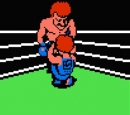
Format: 360, PS3 (version tested), PSP
Release: Out now
Publisher: EA
Developer: Visceral Games
“I heard on all sides, lamentations uttered,” wrote Dante Alighieri as he opened his ears to those eternally condemned by his imagination. So too has Visceral Games grown familiar with cries of damnation in recent times, as news of its reimagining of Alighieri’s 14th century poem as a hack-and-slash videogame has been met with almost universal scorn. Relax, say we. Dante, for one, would be only too delighted at the thought of his hellish visions being thrust upon a new godless generation, and the threat of QTEs can only heighten the awfulness of his metaphors.

Besides, in truth the classic threatened with desecration at this developer’s hands isn’t so much Alighieri’s as David Jaffe’s. For while the language and tone of the game are lifted verbatim from The Divine Comedy, almost every other aspect of Dante’s Inferno is stolen from God Of War. Dante, a crusader’s cross stitched to his bare, ripped chest and with Death’s scythe in his hands, is almost indistinguishable from Kratos in the hands. He double-jumps around 3D environments with skittish abandon, tearing Hell’s minions limb from limb in strings of melee and ranged attacks, landing showboating finishing blows by following incongruous button prompts. He harvests souls and augments abilities to reveal his full, predestined potential. In terms of its systems and ideas, Dante’s Inferno fails to flare passions due to its sheer familiarity.

Neither do those imports from the source poem. For one, Hell hath lost its sting in our popular culture. The waxy crimson walls and monstrous visions that inhabit these halls feel like stock videogame tropes nowadays, closer to the recycled parody of Brütal Legend than an actualisation of our most feared punishments. As such, there are few moments here to move a player to celibacy, the literalised sins represented in the game’s enemies and environments as much there to provide titillating context (both violent and sexual) as disincentive for moral depravity. As you bat back knife-wielding babies that leap towards you from the exposed nipples of a 50-foot topless Cleopatra zombie, your primary concern will probably be that no one walk in on this ridiculous scene, rather than for the fate of your soul.
Dante’s significance rests on the quality of the tribute. The systems it bases its world upon are undeniably robust, and the levelling metagame is engaging, but the execution in play feels routine, and its platforming aspects throw up too many instant and infuriating deaths. As with all entries in this genre, the highlights are the boss battles, which in drawing from the most potent of Catholic nightmares and featuring famous sinners from history provide the game’s standout moments. But in the wider context, Dante’s Inferno fails to rise above its peers, the punishment for which is not damnation, merely a place in limbo. [6]
http://www.edge-online.com/magazine/review-dantes-inferno




















